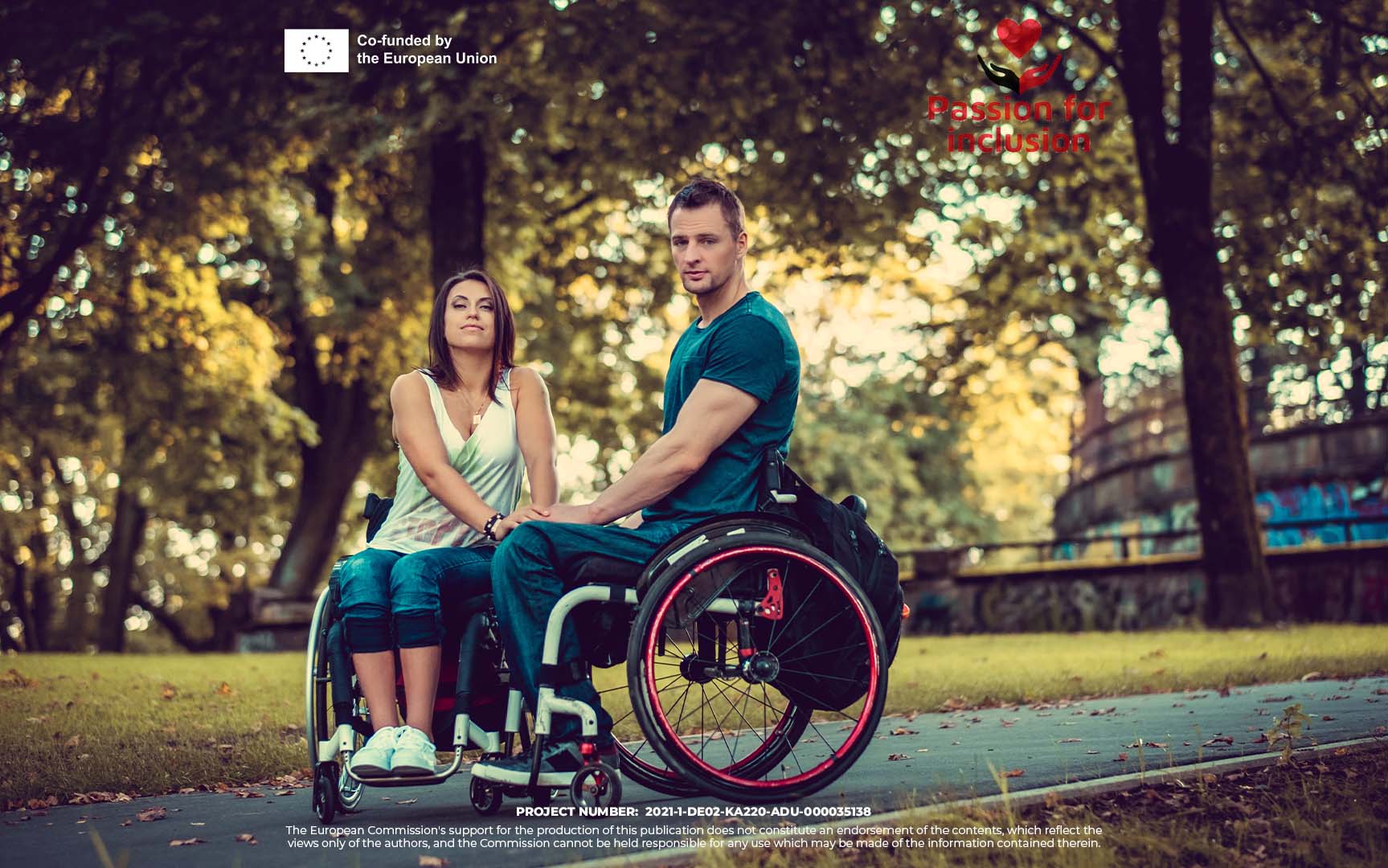PASSION FOR INCLUSION
How to talk with children with intellectual disabilities about sex?

The consortium of the project “Passion for Inclusion” obtained a great result: the first intellectual output is done!
During the last months project partners (organisations from Germany, Turkey, Romania and Italy) carried out a major needs analysis, made through questionnaires and workshops for caregivers and for professionals who work and live with people with intellectual disabilities.
Surveys led to the collection of more than 800 responses from professionals and caregivers who live and work with people with intellectual disabilities on a daily basis. People were interviewed through a Google Form available in the different languages of the partner countries, in order to avoid possible communication barriers related to the language of the forms.
In addition to the questionnaires, in order to stimulate active discussion, ARSU, CERA, SCP and CEIPES (i.e. the organisations involved) also held workshops.
Each country organised two different workshops, one for professionals and one for caregivers of people with intellectual disabilities. The aim was to investigate issues such as: prejudices on the subject; the points that each person found most difficult to deal with in sex education; the view of sexuality as an undeniable individual right. With a view to creating a truly stimulating environment, external speakers were also involved to enable bystanders to listen to different points of view and feel freer to express their needs.
The results, in spite of coming from such different realities (suffice it to think that in Germany sex education is a compulsory school subject while in Italy it is sometimes not even duly addressed during biology classes) revealed very similar needs and fears. The greatest fear remains that of the possible abuse that one’s children may suffer, but at the same time a strong taboo in talking about sexuality emerges: religion and shyness still play a great role in preventing, especially parents, from talking properly about sexuality with people with intellectual disabilities.
Furthermore, the illusion emerges that one can keep one’s children ‘eternal children’ simply by not addressing the subject, as if keeping silent about a part of one’s normal psycho-physical development can prevent its realisation.
There also emerges a strong interest in and need for supports to help create conversation starters on the topic, to understand how to talk about all the sub-topics related to this macro-topic: belonging to the LGBTQIA+ community, relationships with older partners, sexually transmitted diseases and so on.
This first third of the project allowed the consortium to figure out what to include in the training materials for caregivers and teachers working with people with intellectual disabilities. From this point of view, the event to be held in Palermo from 24 to 28 October 2022 will be useful to understand whether the direction taken is the right one.
If you want to read the final benchmark, click here to download the file and read it.
To find out more, follow Passion For Inclusion on Facebook and visit the website.